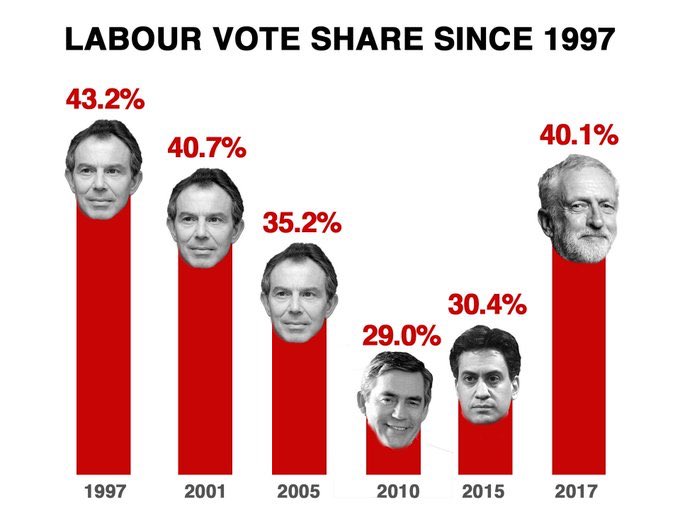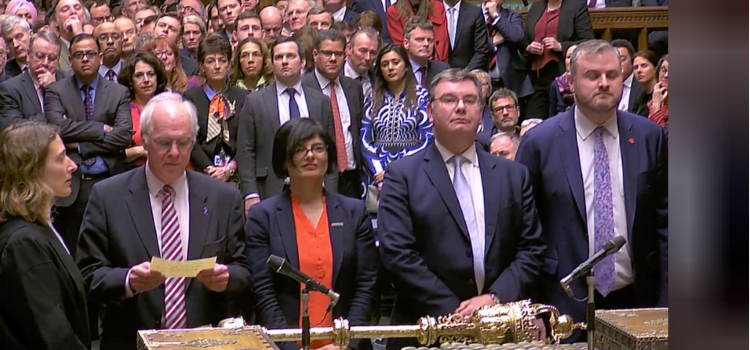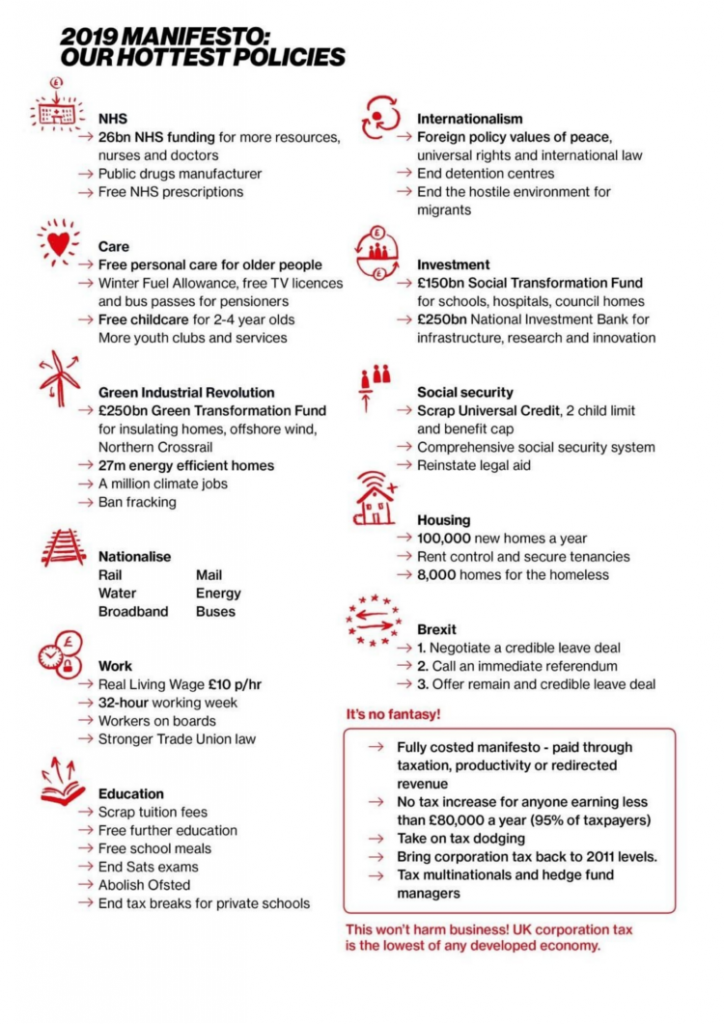It’s time for me to consider the election results; I think in terms of ideas I am set back four years but in this blog article I want to look at Labour’s manifesto for the Arts, callled a Charter for the Arts. One of the criticisms that being made of the campaign is that unlike 2017, the manifesto was not seen as signpost for better times. It was seen as a classic shopping list to bribe a winning coalition, and constructed without thought or knowledge of how to pay for it. The promises need to be bound into a single promise, and the details need to be the result of debate and consensus in the Party. Much, including the Arts manifesto seemed to be an after thought, an insight underlined by it’s late publication.
Policy for creative industries has not been debated at Conference in my memory, and the NPF reports have been weak although the 2017 manifesto played with ideas around the “value gap“; this document does not repeat this. Corbyn’s introduction is radical, as you would expect, establishing Art as the property of and the right of all.
The manifesto promises to defend and extend free access to museums and art galleries, invest in diversity in the arts, ensure lottery money is fairly distributed, that schools are invested in to support the arts, and possibly most radically, but equally unprepared, promised free broad band for all.
The decades old commitment to free access to museums and libraries, the productive macroeconomic arguments and the failure of the market to deliver nationwide fast broadband are all good reasons to make this promise but we allowed it to hang on the question, “Why free? We don’t do it for water!” and I don’t have an answer to that. (Although we do it for museums, galleries and libraries). …








